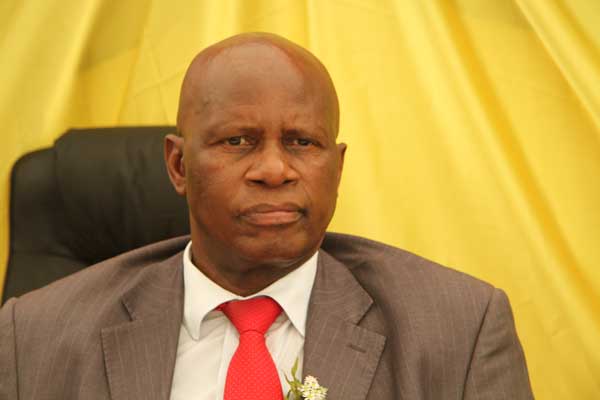
Government’s limited fiscal space threatens its ambitious plan to reduce poverty levels in the country, analysts have said.
BY TARISAI MANDIZHA
Last week, Finance minister Patrick Chinamasa unveiled an Interim Poverty Reduction Strategy Paper (I-PRSP) for Zimbabwe which requires $2,7 billion to address poverty. Chinamasa said development partners and government raised $800 million and the balance ($1,9 billion) would come from budget allocations and borrowing from the domestic market.
The strategy runs from 2016 to 2018 and is anchored on seven pillars — agriculture productivity, social sectors, private sector, infrastructure sector, environment and climate change, gender, women and youth development and strengthening governance.
The target is to reduce the proportion of people below the food poverty level (extremely poor) to 19% by 2019 from 22,5 % in 2011/12. It also aims to reduce the proportion of people below the total consumption poverty line (poor) to 70% by 2018 from 72,3% in 2011/12.
The plan hinges on the support from government, labour, civil society, business and development partners, among others.
Economist Prosper Chitambara told Standardbusiness last week that the plan would falter due to lack of financing. Chitambara said the strategy already had a financial gap and there was no plan on how government intended to fund this initiative.
“I don’t think we will be able to achieve it, especially with the coming elections in 2018 because when we approach elections government expenditure will increase, leaving little resources to allocate to other projects.
- Chamisa under fire over US$120K donation
- Mavhunga puts DeMbare into Chibuku quarterfinals
- Pension funds bet on Cabora Bassa oilfields
- Councils defy govt fire tender directive
Keep Reading
“The strategy will be another failure. Since independence government has launched more than 15 blueprints and not one of them has succeeded,” Chitambara said.
He said there was no focus on employment creation and it was more of the same policies that government had been trying to implement.
Former Economic Planning minister Tapiwa Mashakada said government did not have money to feed its people, could not pay wages and was failing to pay pensioners. He said there was a challenge if the country could not meet these basic requirements.
“The I-PRSP is an important structural issue which needs huge amounts of money to uproot. The level of unemployment, urban and rural poverty are all infringements of the mainstream economy. There are a lot of things that need to be done to tackle poverty and the $2,7 billion is too little to do that and really make an impact. To address unemployment, access to water and to improve the livelihoods of the people, it’s a whole lot of work that needs to be done and the $2,7 billion will not do much,” he said.
Government is cash-strapped and has been struggling to pay salaries to its workers who are gobbling 96,8% of the total revenue. Chinamasa’s plan to forgo bonuses and cut salaries for the civil servants was recently thrown out by government. It therefore means that government has to borrow more from the domestic market. In the first half of the year, there was a budget deficit of $623 million which had to be financed through borrowing from the domestic market.
Economist John Robertson said government had little fiscal space, especially as it had promised to pay bonuses to its workers.
“The budget cannot tackle it because as it is, it cannot pay its wages. Government is trying to raise money, but this is likely to fail unless there is money coming from outside the country because already the money inside the country is too little,” Robertson said.
He said government could create the business conditions needed by placing all agricultural land onto the market. When title deeds cover every hectare of farmland in the country, the collateral value of that land would amount to many billions of dollars that would become available to the private sector, Robertson said.
Robertson said the majority of the programmes outlined in the strategy paper would then be carried out on the strength of private loans from banks to landowners. Government could guide the developments with carefully selected policies, but it would not have to fund them and the country would not need aid funding either.
The I-PRSP is a precursor to the full Poverty Reduction Strategy Paper to be developed and anchored as a successor programme to Zim-Asset. This process will facilitate sustained poverty eradication interventions to be clearly reflected in all of the country’s economic reform programmes.
“In the short to medium term period, 2016-2018, this will be achieved through taking advantage of the existing productive capacity, improving efficiency through the adoption of sustainable production patterns, especially in the agricultural sector, as well as implementation of key reforms relating to the ease of doing business and corporate governance, particularly in both the private and the public sectors,” reads the report.
According to the report, the macro-economic framework for the I-PRSP will be guided by parameters such as fiscal discipline, conducive business environment, foreign direct investment, state enterprises reform and re-engagement.











